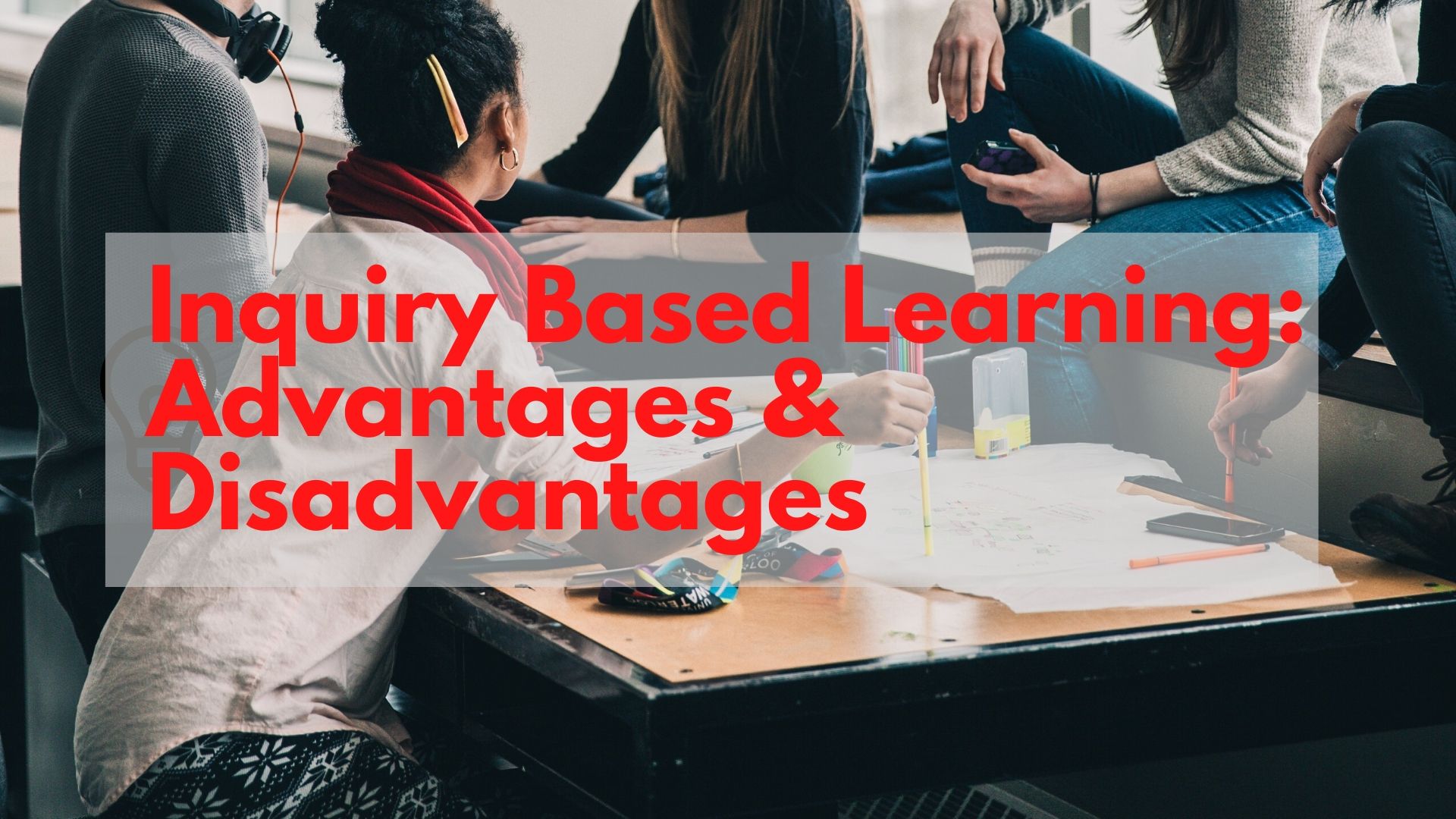Education is a constantly evolving field, striving to find effective methods for imparting knowledge. Schools play a pivotal role in shaping human personality and success, necessitating innovative approaches to engage students in the learning process. Inquiry based learning has emerged as one such effective method.
What is Inquiry Based Learning?

Inquiry based learning is a student-centered approach where learners are actively involved in their educational journey. Instead of passively receiving information, students are encouraged to ask questions, express doubts, and engage deeply with the subject matter. Educators facilitate this process by guiding and supporting students in their exploration and discovery.
Key Components:
-
Group Discussions: These foster collaborative learning environments where students can share ideas and insights, leading to a richer understanding of the subject matter.
-
Guided Learning: While students have the freedom to explore, educators provide a structured framework to ensure that learning objectives are met.
-
Open Conversations: Encouraging open dialogue between students and educators helps build a supportive learning environment where students feel comfortable expressing their thoughts and questions.
-
Exploration: Students are encouraged to delve deeply into topics, which enhances their understanding and retention of the material.
Advantages of Inquiry Based Learning:
Improves Learning Experience
- Enhanced Retention: Practical, hands-on learning helps students remember concepts longer than rote memorization. By engaging in activities and experiments, students form stronger connections with the material, leading to better retention of information over time.
- Understanding Over Memorizing: Students gain a deeper understanding of concepts, leading to more meaningful and lasting knowledge. Instead of simply memorizing facts for a test, students are encouraged to comprehend the underlying principles, which makes the learning experience more relevant and enduring.
Develops Analytical Thinking Skills
- Exploration: Encouraging students to investigate topics deeply fosters strong analytical and comprehensive skills. When students are given the freedom to explore subjects on their own, they develop critical thinking skills and the ability to analyze complex information.
- Cognitive Skills: Active engagement and problem-solving enhance students’ cognitive abilities. Participating in inquiry-based activities stimulates mental processes, improving memory, reasoning, and problem-solving skills.
Promotes Curiosity and the Will to Learn
- Fosters Curiosity: Students are motivated to ask questions and seek out information. This method creates an environment where curiosity is valued, and students feel encouraged to delve into topics that interest them.
- Encourages Exploration: A supportive environment allows students to share their opinions and explore subjects extensively. When students know their ideas are respected, they are more likely to engage deeply with the material and pursue their interests.
Better Understanding of Topics
- In-Depth Analysis: Students achieve a thorough understanding of topics, both at a basic and advanced level. Through detailed examination and investigation, students gain a comprehensive understanding that spans simple concepts to more complex theories.
- Long-Term Retention: A deeper grasp of material leads to better retention over time. When students understand the ‘why’ and ‘how’ behind the facts, they are more likely to remember and apply this knowledge in the future.
Active Student Participation
- Engagement: Engaging and fun learning activities increase student participation. Interactive and enjoyable tasks capture students’ attention and encourage them to take an active role in their learning.
- Enhanced Interaction: Improved communication and interaction between students and teachers result from active participation. When students actively participate, they develop better communication skills and stronger relationships with their educators, leading to a more dynamic and effective learning environment.
Disadvantages and Solutions:
Challenges for Shy Students
- Lack of Confidence: Some students may struggle with confidence in a more interactive setting. In a classroom where active participation and discussion are encouraged, shy students might feel overwhelmed or anxious, hindering their ability to contribute and engage fully.
Solution: Provide additional support and individual attention to help these students build confidence. Teachers can implement strategies such as small group work, one-on-one mentoring, and positive reinforcement to create a safe and supportive environment for shy students to express themselves.
- Teacher’s Role: Teachers must be supportive and encourage all students to participate. The success of inquiry based learning heavily depends on the teacher’s ability to foster an inclusive atmosphere where every student feels valued and encouraged to share their thoughts.
Solution: Implement training for teachers to help them foster an inclusive and encouraging classroom environment. Professional development programs can equip teachers with the skills to identify and support shy students, as well as techniques to promote equitable participation among all students.
Teacher’s Acceptance
- Resistance: Some educators may be resistant to adopting this new method. Traditional teaching methods are deeply ingrained, and some teachers might be hesitant to change their instructional style, fearing it might be less effective or more demanding.
Solution: Ensure teachers receive proper training and support to understand and implement inquiry based learning effectively. Providing comprehensive training sessions, ongoing support, and showcasing the benefits through success stories can help in overcoming resistance and gaining teacher buy-in.
Improper Setting
- Mismanagement: Without proper structure, the method can become chaotic. Inquiry based learning requires careful planning and organization to prevent classrooms from becoming disorganized and unproductive.
Solution: Establish clear guidelines and a well-organized system to facilitate student participation and maintain order. Setting clear expectations, creating structured lesson plans, and using tools to monitor and guide student progress can help maintain a conducive learning environment.
Benefits of Inquiry Based Learning:

Enhanced Retention and Understanding
-
- Practical learning aids in long-term retention: Engaging in hands-on activities helps students remember what they learn by connecting abstract concepts to real-world applications.
- Students understand concepts deeply rather than memorizing facts: By exploring and questioning, students develop a profound understanding of the material, which is more meaningful and enduring than rote memorization.
Development of Analytical Skills
-
- Encourages exploration and in-depth analysis: Students are prompted to investigate topics thoroughly, honing their ability to analyze and evaluate information critically.
- Improves cognitive skills through active engagement: Active participation in learning activities enhances cognitive processes such as problem-solving, critical thinking, and logical reasoning.
Promotion of Curiosity and Engagement
-
- Fosters a curious mindset among students: Inquiry based learning stimulates students’ natural curiosity, motivating them to ask questions and seek out new knowledge.
- Encourages students to share their ideas and explore topics: A supportive learning environment empowers students to express their thoughts and delve into subjects that interest them.
Better Topic Understanding
-
- In-depth learning leads to a better grasp of topics: Students achieve a comprehensive understanding of subjects through detailed examination and exploration.
- Knowledge retention is enhanced through understanding: When students understand the underlying principles of a topic, they are more likely to retain and apply the knowledge in different contexts.
Active Participation
-
- Fun and engaging learning methods increase student participation: Interactive and enjoyable activities capture students’ interest, encouraging them to take an active role in their learning process.
- Enhances student-teacher interaction and communication skills: Increased participation fosters better communication and stronger relationships between students and teachers, creating a dynamic and effective learning environment.
Addressing Challenges:

Support for Shy Students
-
- Provide individual attention and support: Tailoring support to the needs of shy students helps them build confidence and feel more comfortable participating in class activities.
- Encourage confidence-building activities: Activities designed to boost self-esteem and social skills can help shy students become more engaged and active participants in their learning.
Teacher’s Role
-
- Ensure teachers are open to and trained in inquiry based learning: Proper training and professional development equip teachers with the skills and knowledge needed to implement this approach effectively.
- Promote a supportive and encouraging classroom environment: Creating an inclusive and positive atmosphere encourages all students to participate and share their ideas.
Structured Learning Environment
-
- Implement a well-organized system for student participation: A structured approach ensures that all students have the opportunity to engage and contribute meaningfully.
- Provide clear guidelines and support for students: Clear instructions and ongoing support help students navigate the learning process, enhancing their ability to participate actively and effectively.
Conclusion
Inquiry based learning offers a transformative approach to education by promoting active participation, fostering curiosity, and enhancing understanding. By addressing its challenges and leveraging its advantages, this method can significantly improve the learning experience, making education more engaging and effective for students. Through practical, hands-on learning, students not only retain information longer but also develop critical analytical skills and a genuine interest in the subjects they study. By fostering an inclusive and supportive classroom environment and providing clear structure and guidelines, educators can ensure that all students benefit from this dynamic and impactful approach to learning.
Frequently asked question
Q1. What is inquiry based learning?
Answer. Inquiry-based learning is a student-centered approach where learners actively participate in their education by asking questions and exploring subjects deeply, guided by educators.
Q2.How does inquiry based learning improve retention?
Answer. Practical, hands-on learning connects concepts to real-world applications, enhancing long-term retention.
Q3. How does this method develop analytical skills?
Answer. It encourages deep exploration and critical thinking, improving cognitive abilities through active engagement.
Q4. What benefits does inquiry based learning offer?
Answer. It enhances retention, fosters curiosity, develops analytical skills, and promotes active student participation.
Q5. What challenges might shy students face?
Answer. Shy students may struggle with confidence in interactive settings.











